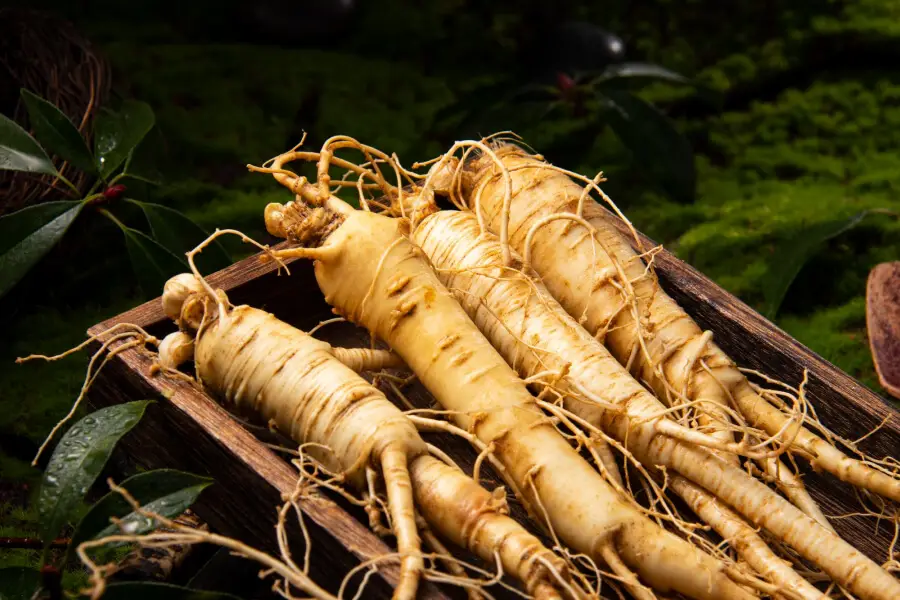Ginseng, a herbal remedy, has been used for centuries in traditional medicine. However, not all ginseng is created equal.
Two popular varieties are Asian (Panax) ginseng and Korean ginseng. While they share some similarities, they also have distinct characteristics, benefits, and uses.
This guide will take you into these differences, helping you make an informed decision about which type might be best for your needs.
Understanding the Difference Between Asian and Korean Ginseng
Before exploring the specifics, it’s essential to understand that both Asian ginseng and Korean ginseng come from the same species, Panax ginseng. The Difference Between Asian and Korean Ginseng lie primarily in their cultivation, preparation, and specific properties.
Asian Ginseng vs. Korean Ginseng
Asian Ginseng (Panax Ginseng): This term generally refers to ginseng grown in various parts of Asia, including China and Korea. Asian ginseng is typically white, harvested after 4-6 years, and then dried without steaming.
Korean Ginseng (Korean Red Ginseng): Korean ginseng is a subset of Asian ginseng. It is specifically cultivated in Korea and is often referred to as red ginseng because of its preparation method. Korean ginseng is harvested after six years and undergoes a steaming process before drying, which gives it a reddish color and enhances its properties.
Health Benefits Comparison
Both Asian and Korean ginseng are celebrated for their health benefits, but there are subtle differences in their effects.
Asian Ginseng:
Energy and Stamina: Often used to combat fatigue and improve physical endurance.
Cognitive Function: Known to enhance mental performance and memory.
Immune System Support: Helps in boosting the immune response.
Korean Ginseng:
Stress Relief: Known for its adaptogenic properties, helping the body adapt to stress.
Anti-Inflammatory: Contains compounds that reduce inflammation.
Sexual Health: Used to improve sexual function and libido.
Ginsenosides in Asian Ginseng
Ginsenosides are the active compounds in ginseng that contribute to its medicinal properties. Asian ginseng contains a variety of ginsenosides, which are believed to be responsible for its energy-boosting and cognitive-enhancing effects.
Ginsenosides in Korean Ginseng
Korean ginseng also contains ginsenosides but in different proportions. The steaming process used in preparing Korean ginseng transforms some of the ginsenosides, enhancing its anti-inflammatory and adaptogenic properties.
Traditional Uses of Asian Ginseng vs. Korean Ginseng
Asian Ginseng: Traditionally used in Chinese medicine for overall health, energy, and longevity. It is often prescribed to combat general fatigue and to improve vitality.
Korean Ginseng: In Korean traditional medicine, it is used to improve overall well-being, enhance sexual health, and reduce stress. It is also considered a vitalizing herb that strengthens the body’s resistance to illness.
Usage and Dosage
Asian Ginseng: Typically taken in dosages ranging from 200 to 400 mg of extract per day. It can be consumed as capsules, powders, or teas.
Korean Ginseng: Recommended dosages vary, but generally, 200 to 400 mg of extract per day is advised. It is commonly available in the form of extracts, teas, and capsules.
Possible Side Effects and Precautions
Both types of ginseng are generally safe when used appropriately, but they can cause side effects in some people.
Insomnia: Due to its stimulating effects, it may cause difficulty sleeping if taken late in the day.
Digestive Issues: Some individuals may experience nausea, diarrhea, or stomach upset.
Headaches: In rare cases, it may cause headaches.
Side Effects of Korean Ginseng
Insomnia: Similar to Asian ginseng, it can cause sleeplessness if consumed too late.
Hormonal Effects: Can potentially affect hormone levels, particularly in women, leading to menstrual irregularities.
Allergic Reactions: Though rare, some individuals may experience allergic reactions such as rashes or itching.
Interactions with Medications
Both Korean and Asian ginseng can interact with various medications. It’s important to consult with a healthcare provider before starting any ginseng supplement, especially if you are on medication.
Possible Interactions with Asian Ginseng
Blood Thinners: May reduce the effectiveness of blood-thinning medications.
Diabetes Medications: Can lower blood sugar levels, potentially causing hypoglycemia when taken with diabetes medications.
Stimulants: May enhance the effects of stimulants like caffeine, leading to increased heart rate and blood pressure.
Possible Interactions with Korean Ginseng
Blood Pressure Medications: Can alter blood pressure, necessitating careful monitoring.
Antidepressants: May interact with certain antidepressants, affecting their efficacy.
Immunosuppressants: Could interfere with medications that suppress the immune system.
Scientific Studies and Research
Research on ginseng, particularly its health benefits and potential side effects, is extensive. Here are some notable findings.
Studies Supporting Asian Ginseng Benefits
Cognitive Function: A study published in the Journal of Psychopharmacology found that Asian ginseng improved cognitive performance and reduced mental fatigue in participants.
Immune Support: Research in the American Journal of Chinese Medicine showed that Asian ginseng boosted immune function and increased resistance to infections.
Studies Supporting Korean Ginseng Benefits
Stress Reduction: A study in the Journal of Ethnopharmacology highlighted Korean ginseng’s ability to reduce stress and improve mood.
Sexual Health: Research published in the Journal of Urology indicated that Korean one improved erectile function in men with erectile dysfunction.
Conclusion
Understanding the difference Between Asian Ginseng and Korean offer valuable health benefits, but their differences make each suitable for specific needs.
Asian ginseng is excellent for boosting energy and cognitive function, while Korean ginseng excels in reducing stress and improving sexual health.
Understanding these differences can help you choose the right type of ginseng for your wellness goals.
FAQs
Is Korean ginseng the same as Asian ginseng?
While it is a type of Asian ginseng, it is specifically grown in Korea and prepared differently, often resulting in distinct properties and benefits.
What type of ginseng is the best?
The best type of ginseng depends on your health goals. Asian ginseng is great for energy and mental performance, while Korean ginseng is ideal for stress reduction and sexual health.
Who should not take Asian ginseng?
People with high blood pressure, pregnant or breastfeeding women, and individuals on certain medications should avoid Asian ginseng or consult a healthcare provider before use.
Which is better, Asian or American ginseng?
Asian ginseng is more stimulating and is better for boosting energy, while American ginseng is milder and better for calming and cooling the body.






